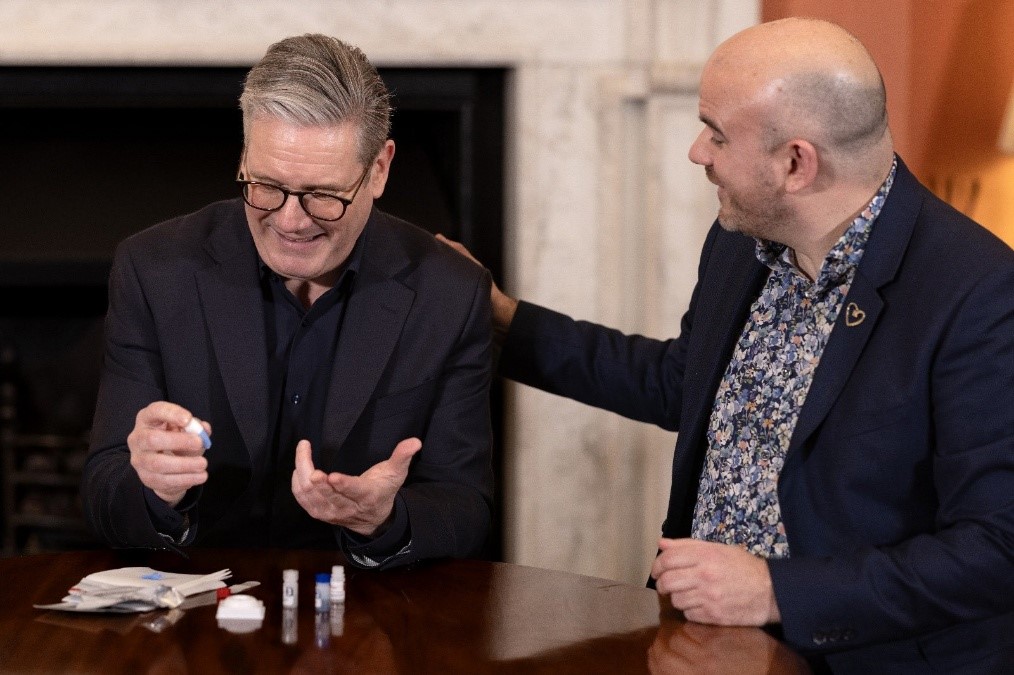
Today marks two anniversaries. Forty-three years ago today, our namesake Terry Higgins was the first named person in the UK to die of an AIDS related illness. Had he lived, Terry would have turned 80 this summer. Instead, he passed away in St Thomas’ Hospital – across from parliament where he worked for Hansard – on 4 July 1982, aged just 37.
It is also exactly a year since the general election. On that day, we highlighted that this is the government that could end new HIV cases. It’s a possibility that our founders couldn’t have dreamed of when they started our charity in Terry’s name four decades ago.
Fast forward 12 months and we’ve made significant strides forward, with much more to do. At Terrence Higgins Trust, our role is to make sure that HIV is on the agenda of governments of all stripes and to make the case for why this matters for everyone.
Here’s a round-up of the progress in the first 365 days and what challenges are next.
Five big wins
1. Government commissions a new HIV Action Plan for England in first 100 days
At the HIV Prevention England conference, with just 88 days under their belt, the Public Health Minister officially commissioned a new HIV Action Plan for England to end new HIV cases by 2030.
2. Mpox vaccines and gonorrhoea vaccines to be made available
As a result of campaigning from Terrence Higgins Trust and partners, in September 2024 the government commissioned an mpox vaccine programme for those who need it.
In May 2025, and after a lot more campaigning, a commitment to roll out the gonorrhoea vaccine followed. The vaccine will be available in sexual health services from August in England, September in Scotland and Wales – and it’s a global first.
3. Opt-out HIV testing in A&Es is extended and expanded
In December 2024, at a 10 Downing Street reception to mark World AIDS Day, the Prime Minister committed £27 million to extend and expand the government’s successful opt-out HIV testing programme in emergency departments. Nine new hospitals are joining the programme, meaning 89 hospitals across England will be routinely testing for HIV whenever blood is taken in emergency departments, for another year to come.
4. Sir Keir Starmer becomes the first British Prime Minister to take part in National HIV Testing Week, taking an HIV home test from 10 Downing Street
In February 2025 we made history, Sir Keir became the Prime Minister to publicly do an HIV self-test. He did so as part of National HIV Testing Week, a UK government funded and Terrence Higgins Trust delivered drive to offer free, quick and easy home testing kits. It was front page news across the world.
This was followed by the biggest ever increase to the Public Health Grant, supporting local sexual health services. The five percent, or £200 million, will support local services to provide digital and clinic-based HIV & STI testing options.
5. The 10 Year Health Plan commits to improving HIV testing, tackling inequalities and getting more people on PrEP who need it
Just yesterday, the government launched Fit for the Future – The 10 Year Health Plan for England. The plan includes a restatement of the commitment to end new HIV cases by 2030 and outlines three shifts for the health service: from analogue to digital, from hospital to community and from sickness to prevention. Each will be crucial for reaching our shared goal.
Five next steps
The 10 Year Health Plan gives us the framework for success. Now, the devil will be in the detail of the new HIV Action Plan for England.
To end new HIV cases by 2030 the government must:
1. Ensure everyone is aware of and can access an HIV self-test across England, making ordering available on the NHS App.
2. Invest in a national programme to find and support the 12,000 people living with diagnosed HIV in England currently not accessing care.
3. Act to expand PREP access, including through a digital service.
4. Build on the success of National HIV Testing Week and opt-out HIV testing in A&Es to make HIV testing routine across the health service, in line with clinical guidelines.
5. Tackle HIV stigma, starting in health care settings.
Find out more details on our calls for the new HIV Action Plan for England.
Get it right and together we will achieve something remarkable: stopping HIV cases and ending the onward transmission of any virus without a vaccine or a cure, for the first time in history.
For Terry, we can’t let this opportunity slip away. Help us make sure the government turns these commitments into reality by donating to support our work today.

